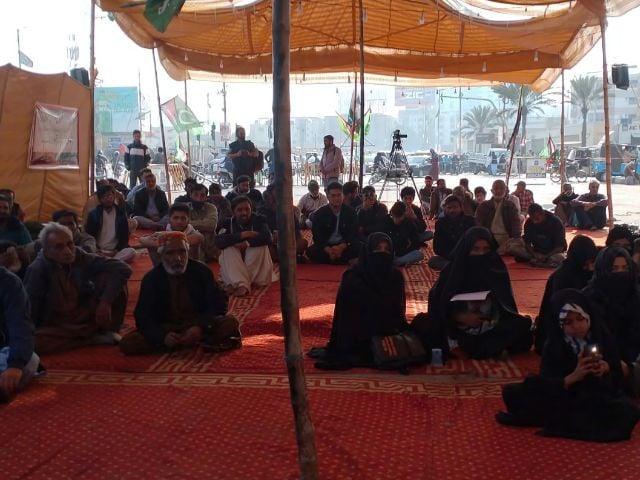Protests organized by the Majlis Wahdat-e-Muslimeen (MWM) in response to the ongoing crisis in Parachinar, Kurram district of Khyber Pakhtunkhwa, have caused major traffic disruptions across Karachi.
The sit-ins, which began on Thursday, continued into Friday, blocking major roads and creating chaos among commuters during the morning rush hour.
The riots in Parachinar have left more than 130 people dead, and reports indicate that more than 100 children have died due to a shortage of medicines in the area.
However, Khyber Pakhtunkhwa government spokesperson, lawyer Muhammad Ali Saif, has denied reports of child deaths, calling them baseless.
In Karachi, protests have led to road closures in several key areas. MA Jinnah Road at Numaish Chowrangi is blocked and motorists are diverted via alternative routes such as Secretary Chowrangi and Guru Mandir towards Soldier Bazaar.
Other affected areas include Abu Al Hasan Isphahani Road to Super Highway, which has caused traffic to be diverted through Paradise Bakery towards Fariya Chowk.
Traffic has also been rerouted due to closures at Five Star Chowrangi, with vehicles plying on the service road. Additionally, parts of Sharea Faisal, including the stretch from Star Gate to Malir, remain inaccessible, forcing traffic to move along Drigh Road to Rashid Minhas Road.
The national highway at Malir 15 bridge, which slopes towards Quaidabad, is also blocked and traffic is being diverted from Malir Halt to Model Colony. Vehicles are being diverted from other areas, such as Manzil Pump, to Younus Chowrangi and from Daud Chowrangi to the industrial area.
Authorities have urged travelers to use alternative routes as protests continue across the city, further complicating an already difficult traffic situation.
Addressing protesters at Numaish Chowrangi on Thursday, MWM leader Allama Hasan Zafar Naqvi asked the government to fulfill its responsibility to restore lasting peace in Kurram, particularly in the conflict-ravaged Parachinar region.
He described the dire situation in the region, where families have been left vulnerable and abandoned, struggling without access to basic needs.




